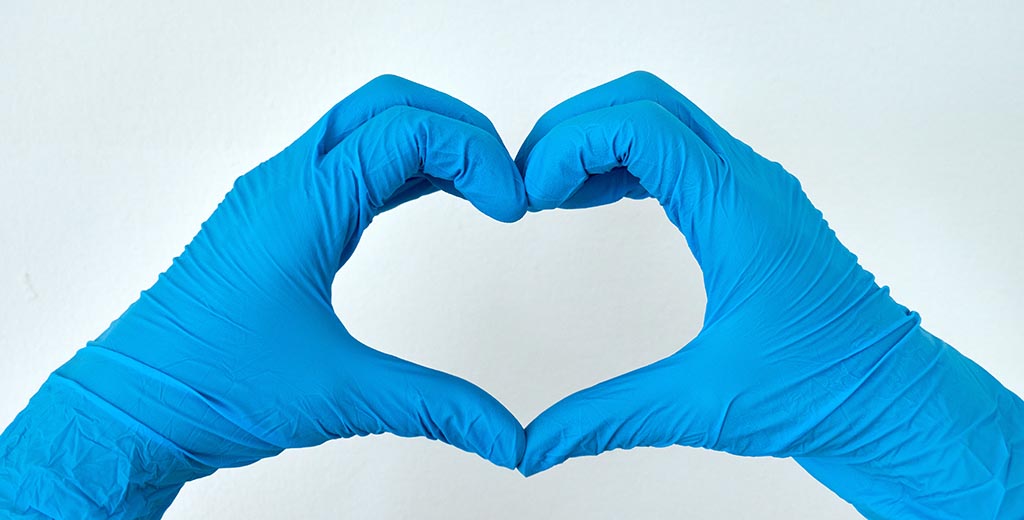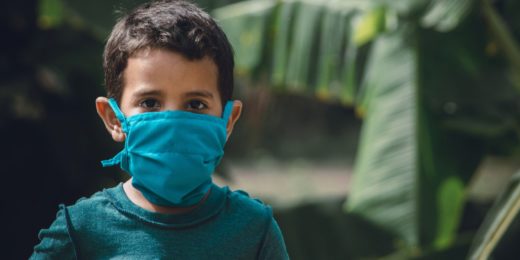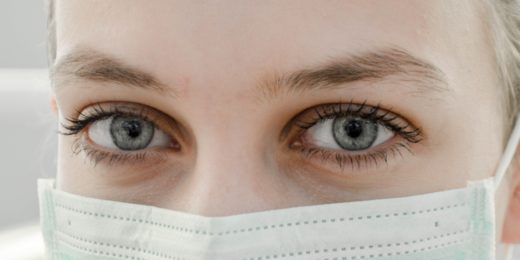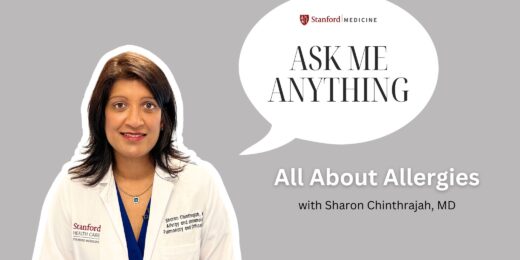Years from now, when we look back at the COVID-19 pandemic and how the virus brought the world to a standstill, we'll remember the heroes. Like the 9/11 first responders who arrived at the Twin Towers in New York City when they were still aflame, we'll honor health care workers around the world who walked into an unknown menace and did what they are trained to do: heal.
One of those on the front line is Angela Rogers, MD, a Stanford Medicine pulmonary and critical care physician with whom I spoke for this 1:2:1 podcast. Throughout our conversation, I was taken by her humility, sense of duty and enormous sense of pride in the passion and collaboration of patient care teams at Stanford.
As we concluded our conversation, I asked if there was anything I had missed, anything she wanted to add. "I hope I made it clear it's a team effort," she said. Yes, I assured her, she had.
This Q&A is a condensed and edited version from that conversation.
If COVID-19 were a person, how would you describe that individual?
COVID-19 is the person who wasn't invited to the party, but showed up anyway. Maybe a pickpocket at the party, too. It's not until you get home that you realize, "Wow, my wallet's gone."
People were living lives in their normal way -- eating out with friends and family, going to church, concerts, large gatherings. And all the while, there's this person sneaking around, upending it all. This person has taken something tremendous from us.
For the patient with COVID-19, what has been described as especially stark is the isolation and aloneness.
I think one of the hardest things about the COVID-19 era for us is the moving from a family-centered, patient-centered way of caring for intensive care unit patients to it really being just you and your patient again.
Our new hospital at Stanford is designed around having families there. When I was in the ICU in January, the patients' families were embedded into patient care. With COVID-19, they can't be in the hospital. It's very hard for patients and their families. Every day, the family gets a call from someone on the team, or they call and talk to the nurse. But it's not the same as actually being at the bedside.
You're an expert in acute respiratory distress syndrome, ARDS. How does this virus enter and disrupt the lungs?
There's still a lot we don't know about the pathogenesis of COVID-19. Honestly, as an ICU doctor and ARDS researcher, it's one of the hardest things about this disease. The fundamental questions about what's happening in lungs with COVID-19, we don't know.
Some people are saying, maybe there are problems with blood clots and we should give people full anticoagulation; that's happening in centers. Others say, in general in ARDS, the one thing we know for sure is to keep the lung volume low, and the pressure low, and to really use very gentle small breathing pattern on the ventilator.
We don't know if it is safe to throw out those 50 years of knowledge and let people take larger breaths, or wait until patients are much sicker to intubate to try to avoid the ventilator entirely if we can. In the absence of data from clinical trials, it's really hard to know.
Around the country, health care teams are being celebrated for their courage and care. What have you learned about your colleagues?
I have never been prouder to be an ICU doctor and team member. It does feel like all of the training that we've done has really prepared us to take care of sick patients at this time.
Stanford has always had a multidisciplinary ICU. Our teams comprise of physicians from emergency medicine, from surgery, from anesthesia, from a medicine background like mine. You realize that everyone's strengths are building together here. The nurses and respiratory therapists who take care of COVID-19 patients are all in. They are at the front and center in the care of these patients. It's really been a team effort and has made us all realize how lucky we are to work together.
When you're driving home at night these past few weeks, what are you thinking?
I think it's true of all of us, this feeling of, have I done enough? Should I have tried to fly to New York? How can I help my colleagues that are totally overrun? New York, Yale, Boston -- they've have had such an overwhelming number of cases. I think the feeling that you can't give your usual standard of care, that you are just so full, is very trying for physicians that are elsewhere. Our hearts really go out to our colleagues there and everywhere, and there is honestly a feeling of guilt to not be able to help them.
I know you're a mother of two children. Are your children asking you questions?
My children, I think, feel relatively secure that I'm going to be fine. I don't think they're as aware of the physicians in the highly-impacted places that have gotten sick and even died. Most of the families of their friends really are sheltering at home together, while my kids see me far less than usual. Thus, their experience is quite different.
On the flip side, I do think that they feel proud that we're making an impact, and I think that would be true for children of health care providers everywhere. There's a recognition that what we do matters.
Listen to more 1:2:1 podcasts on COVID-19 from Paul Costello at https://soundcloud.com/stanfordmed/sets/covid-19
Image by Uniqueton






